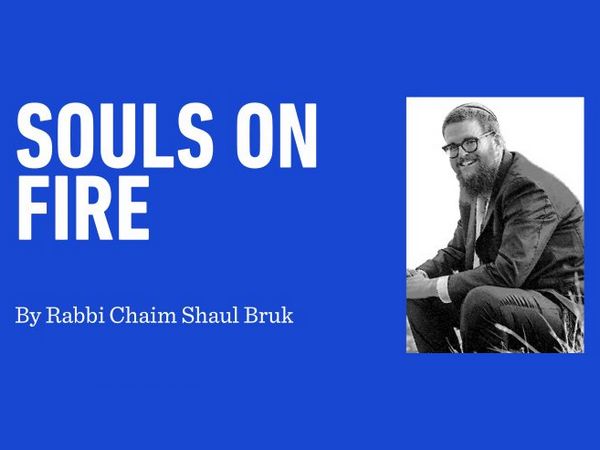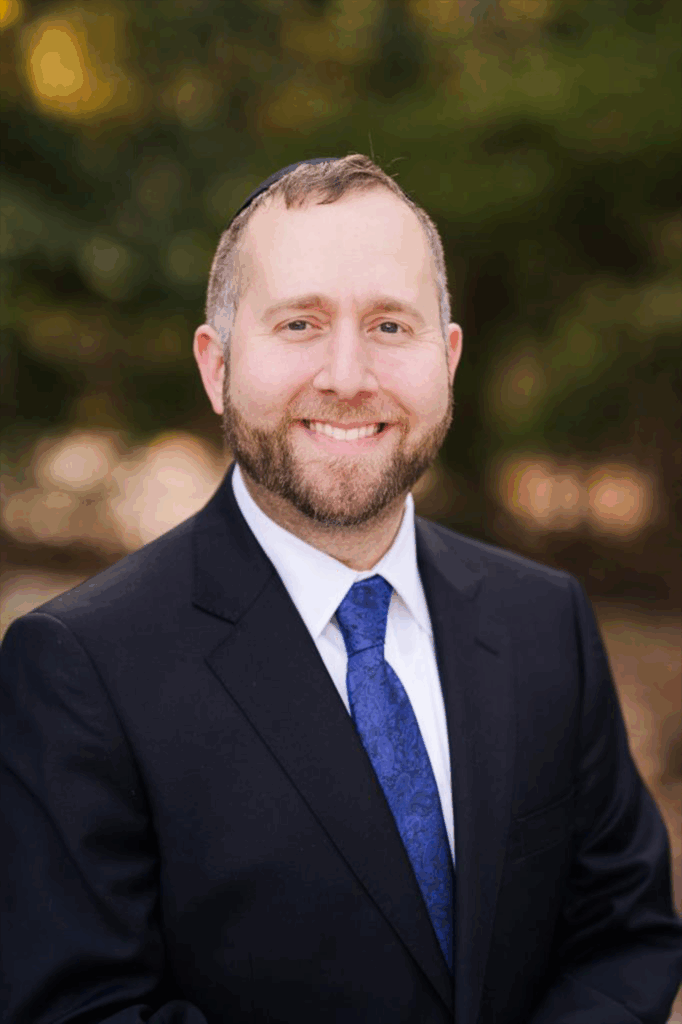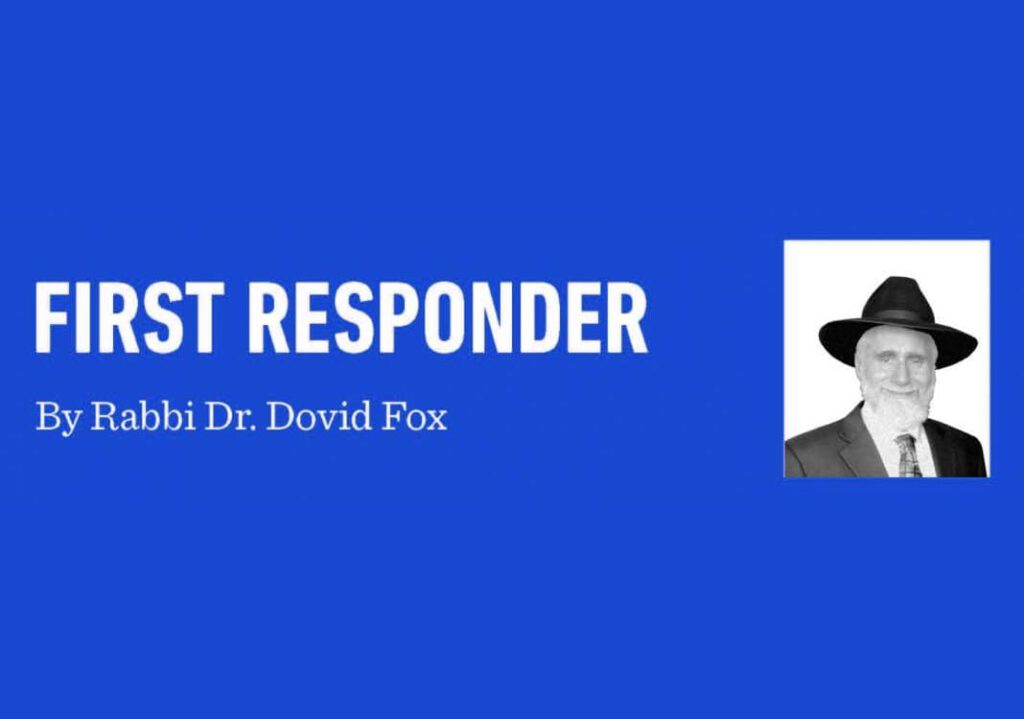Taking The Plunge: Ice Baths, Neuroplasticity, And Rosh Hashanah
By: Rabbi Efrem Goldberg
A little over a year ago, I bought an ice bath and I’m proud to say I hardly miss a day without spending three minutes immersed in 45-degree water. Many studies show the health benefits of cold exposure, from cardiovascular to lowering inflammation, to muscle recovery and increased metabolism. When you get into an ice bath, your body goes into fight or flight mode, knowing it can’t stay there forever. The cold exposure causes a significant release of epinephrine or adrenaline and dopamine in the brain and body. These neurochemicals make us feel alert, awake, and energized. Each day after my “plunge,” I feel as if I have drunk three cups of coffee and can lift a truck. All of that is nice, but it isn’t what inspired me to buy it or why I use it.
Science used to believe that our brains were hard-wired, rigid, fixed, and finite. But more recently, neuroscience has discovered that the brain is “plastic,” which means that it can change, it can be molded, and we can rewire it. We aren’t born with specific personalities, feelings, thoughts, capabilities, skills, or strengths and cannot change and grow. Instead, we are blessed with the gift of neuroplasticity, which means our brains can reorganize their nerve cell connections in response to learning new skills, information, and data.
Neuroplasticity describes the brain’s ability to change throughout our lives. According to Dr. Norman Doidge, a neuroscientist at Columbia University, in his book, “The Brain That Changes Itself: Stories of Personal Triumph from the Frontiers of Brain Science,” our brain’s plasticity exists from cradle to grave. New neural pathways can open; we can rewire our brain based on our habits, behaviors, choices, and efforts. Scientifically, a 100-year-old person, like any 10-year-old or 1-year-old, can still mold his brain. It’s never too late. We can literally be reborn, we can recreate and rewire if we want to, if we choose to.
Rosh Hashanah corresponds not with the first day of creation, but with the sixth: not when G-d formed heaven and earth, but when He formed mankind. This is because only then did the world have meaning and purpose and could be considered complete. On Rosh Hashanah, we don’t say, “Today was the creation of the world.” It’s not the birthday or anniversary of the world; we aren’t commemorating a historical event or something that happened in the past. We are not even being judged for what we have done with our time since Creation until now; judgement is not for our past.
We say, “Today, your new world is being conceived, and therefore, today you and I will be judged for what we did with the opportunity to be born again, to restart, to reset, and to reboot. We cannot change the past; we cannot go back in time and make different choices. Of course we must take responsibility for the past, feel remorse and regret for it. But its real significance is what we learn from it, how we make changes to our lives so that we do not repeat those mistakes. Rosh Hashanah is about creating a new future with a fresh, new start.
Chazal say (Rosh Hashanah 16b) that we are not judged for the past since we cannot change it. We are only responsible for the present, who we are right now, at this moment. We are evaluated based not on what we do without our birthday (the anniversary of our birth), but with our “rebirthday,” the day on which we are reborn.
Rosh Hashanah as a gift of new beginnings, fresh starts, and clean slates is not only a metaphysical truth, it is evident in the physical world, too. We are evaluated not for what we have done since Creation, but if we are choosing to embrace creation, the power to create again and again, to remold, rewire, and reshape our brains and ourselves.
On Rosh Hashanah we are asked: Are you fixed or are you growing? Are you a finished product or a work in progress? Are you stuck in the past or improving for the future? Are you neuro-stuck or neuro-plastic?
Every single time I get into the ice bath I don’t want to. But I do it anyway and when I do, I am rewiring my brain, not metaphorically or symbolically, but literally. There is a part of our brain in the cortex that controls willpower called the Anterior Mid-Cingulate, the AMC, and it turns out that when we perform an action or task even when we don’t want to, the AMC actually grows in size, it gets bigger and stronger and becomes more capable of completing tasks and actions outside of our comfort zone. The challenge is that it only works one day at a time and needs to be renewed daily. If you return to your comfort zone, if you don’t push your limit, the AMC shrinks and goes back to its original size.
We live in an age of life hacks and various shortcuts to simplify accomplishing things. But here’s the thing: there may be hacks in technology and home improvement, but not in life. The only hack in life is to do the hard thing, and when you do the hard thing, you become more capable of doing more hard things. We can sit in 45-degree water for three minutes. We can rewire ourselves to be selfless instead of selfish, to be calm instead of angry, to be patient instead of rushed, to be a giver instead of a taker, to live the life we have dreamt of living.
There is a person from another community who people look up to for his generosity and volunteering, but also his religious commitment and practice. He never misses minyan, learns daily, and inspires others. But it wasn’t always that way. In 2014, on Erev Yom Kippur, he wrote to his children:
My Dear Children,
Yesterday was an important day for me. For the first time in 25 years, I started to wear tzitzis again. That is my commitment for the New Year. I just wanted you to know that the three of you were my inspiration to do it. Each of you in your own way and at different times made me think about how I can improve myself.
He then spelled out how each child’s growth motivated him and concluded by saying, “So, in summary you three are my inspiration. Mom and I love you more than anything and wish you all an easy fast and the most unbelievable year. We are so proud of you. Words cannot describe.”
This grown man, who had not put on tzitzis in 25 years, took the plunge and with it he rewired his brain. He grew his AMC stronger to add more to his life.
This Rosh Hashanah should be a day for neuroplasticity. Take some time to reflect and decide how will you rewire your brain, what you will reprogram, which challenge you will take on, which comfort zone will you breach, and if you will take that plunge to change your mind and allow your mind to change in ways you never thought possible. nRabbi Efrem Goldberg is the Senior Rabbi of the Boca Raton Synagogue (BRS), a rapidly-growing congregation of over 850 families and over 1000 children in Boca Raton, Florida















